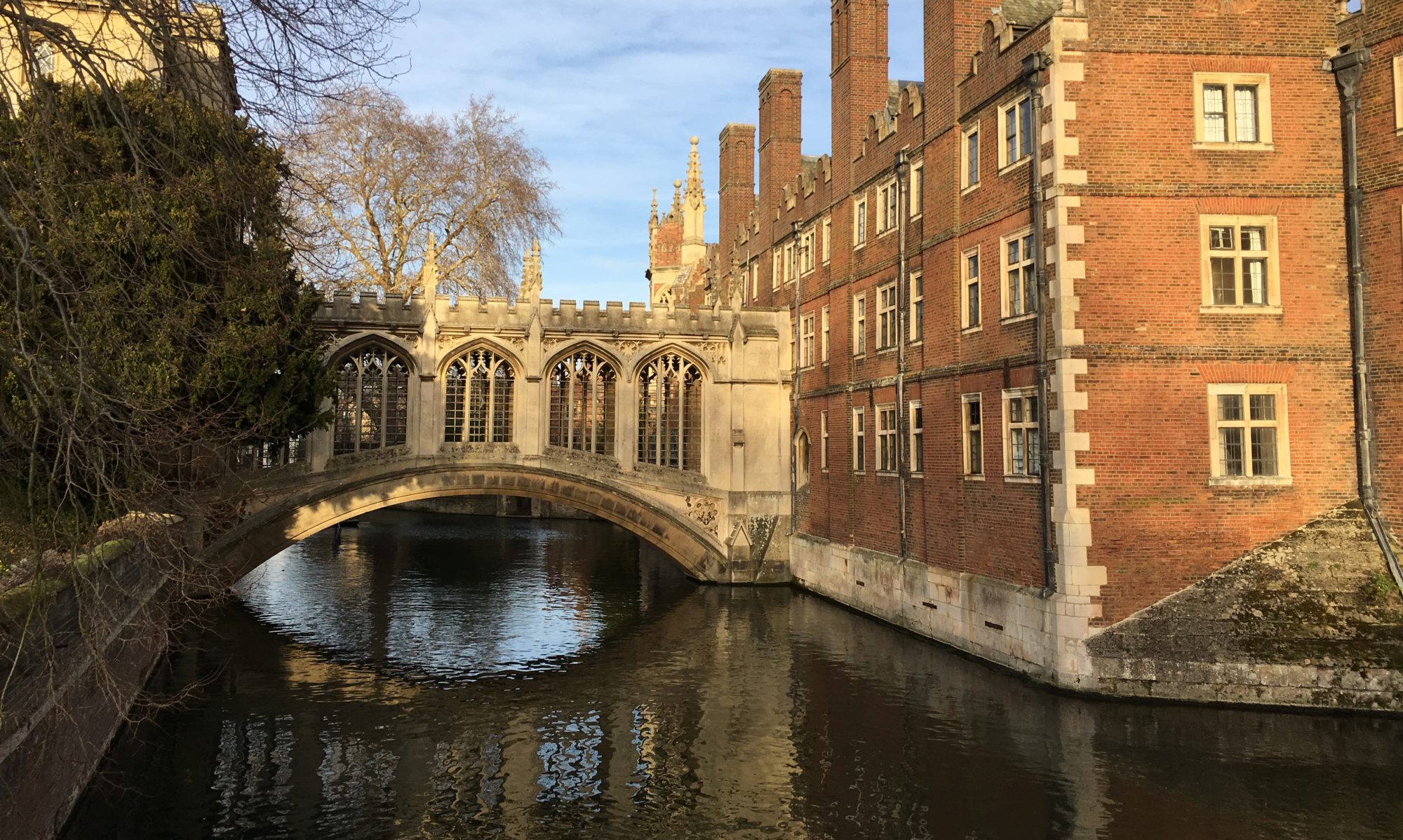When the English poet and Cambridge alumnus Rupert Brooke was homesick and depressed in Germany in 1912, he wrote a nostalgic, light-hearted poem about one of Cambridge’s gems:
. . . would I were
In Grantchester, in Grantchester! —
Some, it may be, can get in touch
With Nature there, or Earth, or such.
…I only know that you may lie
Day long and watch the Cambridge sky,
And, flower-lulled in sleepy grass,
Hear the cool lapse of hours pass,
Until the centuries blend and blur
In Grantchester, in Grantchester. . . .
God! I will pack, and take a train,
And get me to England once again!
For England’s the one land, I know,
Where men with Splendid Hearts may go;
And Cambridgeshire, of all England,
The shire for Men who Understand;
And of THAT district I prefer
The lovely hamlet Grantchester.
(from “The Old Vicarage, Grantchester”)
Brooke proceeds to comically badmouth every other village in the vicinity of Cambridge based entirely on what insults rhyme with their names.[1] It makes an interesting timepiece, to recognize the names of villages that have now been subsumed as neighborhoods of the City of Cambridge (Madingley, Cherry Hinton, Ditton…). Grantchester, however, is one village that has kept its geographical identity, still tiny and discrete on the banks of the River Cam amidst fields and college sports greens. Nevertheless, it is very closely linked with Cambridge, not least by the steady flow of joggers and dog-walkers along the two-mile footpath that runs beside the River Cam from Cambridge to Grantchester. Much more could be said about Grantchester, the village— its medieval church, its pubs, its tearoom, its namesake detective show I got my family hooked on after witnessing its fourth season being filmed in town—but it’s the path to Grantchester I want to write about for now. The path ambles through the idyllic chain of green where Brooke wanted to lie “flower-lulled in sleepy grass”: Grantchester Meadows.











